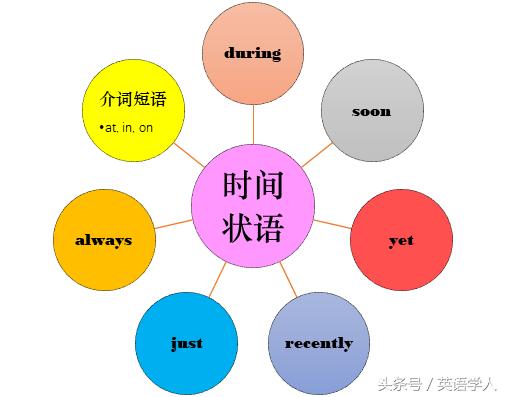状语是怎样用的(怎么理解状语的功能)
本文以状语的不同功能为分类原则讨论状语。状语是被用作修饰谓语动词的成分。有五大基础状语类型之说,也就是时间状语,地点状语,方式状语,频率状语和程度状语。但是它们并没有涵盖住所有状语类型。此外还有让步状语,原因状语,条件状语,目的状语,结果状语,比较状语等,我头条号其它文章在讨论状语从句时总结过,在这里不赘述。

以前我写过状语,详见极简英语语法——状语。但是它是以构成状语的词性的分类写的,如副词,非谓语动词等。这种分类有益于分析句子成分,但是无益于用状语表达。本文便以五大基本状语类型开始,讨论状语在句子里的功能。
时间状语-
I go to school at 7:00 every morning. 我每天早晨7点钟去学校。
-
We brought another house recently. 最近我们买了另一套房子。
-
I worked as an assistant during my summer vacation. 在暑假期间我以助理的身份工作。
-
I have not get the chance to speak with her yet. 我还没有取得和她说话的机会。

I like it here so I do not miss Shu state. 此间乐,不思蜀。
Don't be proud. There are talents everywhere. 不要骄傲,人才到处都有。
Please wait behind the red line outside the door. 请在门外的红线后等候。
Nowhere can you find such a beautiful girl. 你在别处可找不到这么漂亮的女孩。

-
Could you speak more slowly? 你能说得更慢些吗?
-
He finished the work quickly and went home. 他很快做完工作后回家了。
-
I politely handed my homework to my teacher. 我礼貌得把作业交给老师。
-
Don't behave rudely, or I will beat you. 不要那么粗鲁,否则我揍你。

-
He never attends a party without money. 他从不赴宴不带钱。
-
He sometimes attends a party without money. 他有时赴宴不带钱。
-
He usually attends a party without money. 他通常赴宴不带钱。
-
He always attends a party without money. 他一直赴宴不带钱。

-
I have many admirers. He is my admirer, too. 有很多爱慕我的人,他也是我的爱慕者。
-
You have done enough today, so you can rest tomorrow. 你今天做得够多了,明天可以不来上班了。
-
This student nearly passed the exam, so that he is the one who cried most badly. 这个学生差点就通过考试了,所以他哭得最凶。
-
I am so excited to meet you again. 再见你我很高兴。

表示持续时间的
-
He may not stay long enough to see the completion of this project. 他可能活不到工程完工的时候。
表示观点的
-
Personally, I would rather you win the game. 从我个人方面说,我希望赢比赛的是你。
-
Frankly speaking, you are wrong. 坦白的说,你错。
表示评价的
-
Unfortunately, I forget to buy you a present for your birthday. 不幸的是,我忘了在你生日时买礼物。
-
He like you, apparently. 很显然,他爱你。
免责声明:本文仅代表文章作者的个人观点,与本站无关。其原创性、真实性以及文中陈述文字和内容未经本站证实,对本文以及其中全部或者部分内容文字的真实性、完整性和原创性本站不作任何保证或承诺,请读者仅作参考,并自行核实相关内容。文章投诉邮箱:anhduc.ph@yahoo.com






